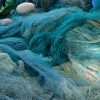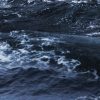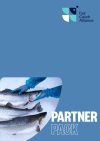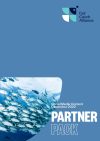SAME RULES FOR ALL SEAFOOD.
THE CAMPAIGN TO IMPROVE AUSTRALIA’S IMPORTED SEAFOOD
More than half of the seafood sold in Australia is imported, but it doesn’t have to meet the same sustainability and ethical rules as local seafood.
There is currently no law that prevents illegal unreported and unregulated, unethical or unsustainable seafood from entering our local market from overseas. There’s no way of knowing it’s Fair Catch.


Current reporting status of key data elements needed to prevent importation of illegal seafood into Australia (Source: Mending the Net Report – click here for more key findings).
IT’S SIMPLY NOT FAIR CATCH.


Contributes to the global decline of fish stocks.


Undercuts local industry and threatens Australian jobs.


Kills threatened species like certain turtles, seabirds, sharks and dolphins.


Untraceable so consumers can’t be sure what they are eating.


Obtained using modern slavery or terrible workplace conditions.
A NEW ALLIANCE IS PUSHING FOR CHANGE
The Fair Catch Alliance is committed to making sure we have the same rules for all seafood.
The government needs to take responsibility for the food they let into the country. By enforcing better standards for seafood imports, the government can …


Help protect consumers from undesirable products.


Support better fishing practices both locally and overseas.


Value our global ocean ecosystems and threatened species.


Protect the future of eating seafood by ensuring sustainable fisheries.
In partnership with a diverse alliance of interests across local industry and conservation, Minderoo Foundation is campaigning to help overseas fisheries improve and to end imports of undesirable seafood.
The more organisations and people who care and join our calls for change the more powerful our alliance will be
An estimated 65% of seafood consumed in Australia is imported. However, consumers cannot confidently know that it has been sustainably, and ethically sourced. There is currently no policy framework that prevents illegal, unreported and unregulated (IUU) fishing products from entering our local market. There are also no comprehensive traceability requirements to verify product information from source along the supply chain.
As a consequence, Australian seafood consumers are buying and eating seafood that may come from illicit or questionable sources from both an environmental and an ethical perspective. The current arrangements mean that some of the imported seafood being sold in Australia is:
- Generally untraceable with consumers unable to know exactly what they are eating, where it is from and how it was caught.
- Contributing to the death of threatened species such as certain turtles, sharks, seabirds and dolphins as bycatch.
- Contributing to global decline of fish populations and putting the future of eating wild-caught seafood and the health of oceans at risk.
- Contributing to poor worker conditions and modern slavery in overseas fishing industries.
- Putting local jobs and industry at risk by being undercut with cheap imported substitutes that aren’t required to meet the same standards as local products.
Australia has an opportunity to encourage more sustainable and ethical fishing practices in the countries we import seafood from, protect our domestic seafood industry and reward those who are doing the right thing.
Australia should take action to encourage overseas fisheries to improve their practises and to ensure that food that doesn’t meet basic minimum harvesting, production and traceability standards is not allowed into the country.
Seafood entering Australia should have basic traceability information, such as where and when it was caught and by whom. This would:
- Help bring imported seafood in line with the various Australian fisheries, which are currently held to higher standards.
- Close the Australian market to seafood that has been caught illegally, has modern slavery or other unethical and unsustainable or destructive practices in its supply chain.
- Benefit the environment and coastal communities we source from by improving the management of fish resources and protecting endangered marine life and ecosystems.
- Help protect consumers from unregulated or undesirable products and empower them to more confidently choose products, based on verified accurate information.
Australians must be able to choose seafood that is sustainably and ethically produced, even if it is imported. Australia should establish seafood import controls to ensure we have confidence that we know what products are and where they come from. Everyone deserves to know exactly what they are buying.
Other major seafood importers like the USA, the European Union and Japan have strengthened their import controls. Australia can too.
We the undersigned are calling on the Australian Government and Parliament to introduce new import controls that will drive improvements. We stand ready to assist in the design and implementation of a staged and comprehensive reform program that assists overseas fisheries improve practices and raises the standards of seafood imports to Australia.
SUPPORTED BY





















ABOUT
US
The Fair Catch Alliance is a project managed by Minderoo Foundation that is campaigning to end the importation of undesirable fishing products to Australia and ensure we have the same rules for all seafood. We believe this to be an important reform necessary to restore global oceans to their natural thriving state, protect threatened species and our local fishing industry.
If you’re as passionate about protecting our ocean as we are, we’re asking for your help.
As a supporter of Fair Catch Alliance, you can help us to reduce exploitation of fishers, illegal activities, and unsustainable fishing in the countries we import from.
The Partner Pack contains:
- Background information
- How we support our campaign partners
- Key narratives
- Social media content
- Promo video
- Templates
- An invitation to sign the Open Letter
Social Media tiles December 2022
The Partner Pack contains Fair Catch Alliance social media tiles, based on our social research, to share on your channels. We suggest you tailor your captions using the suggested messages in this pack.









